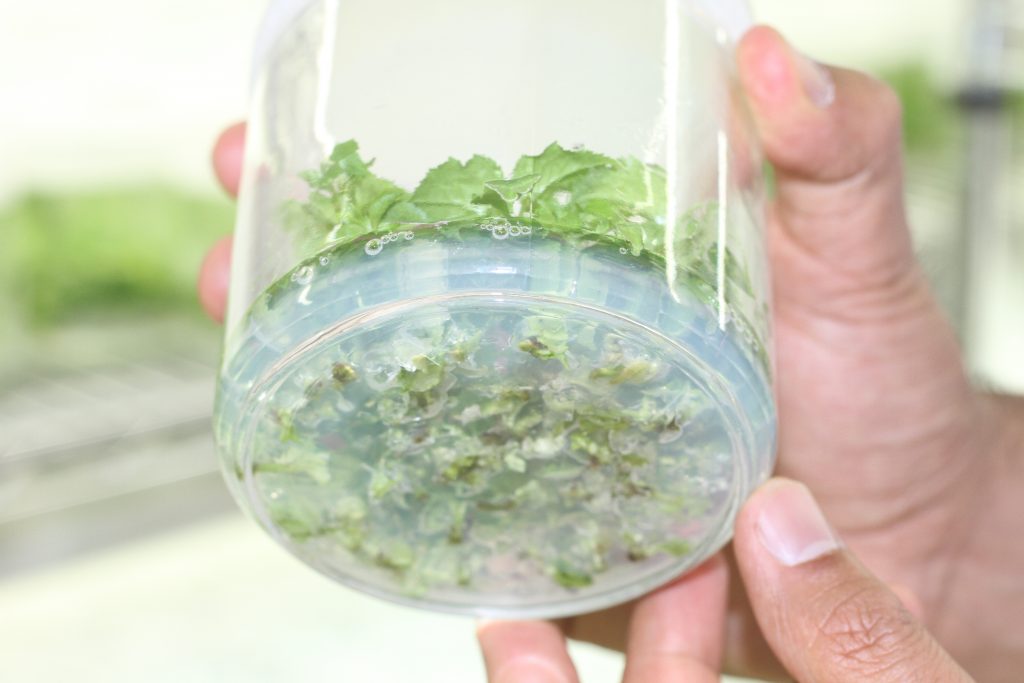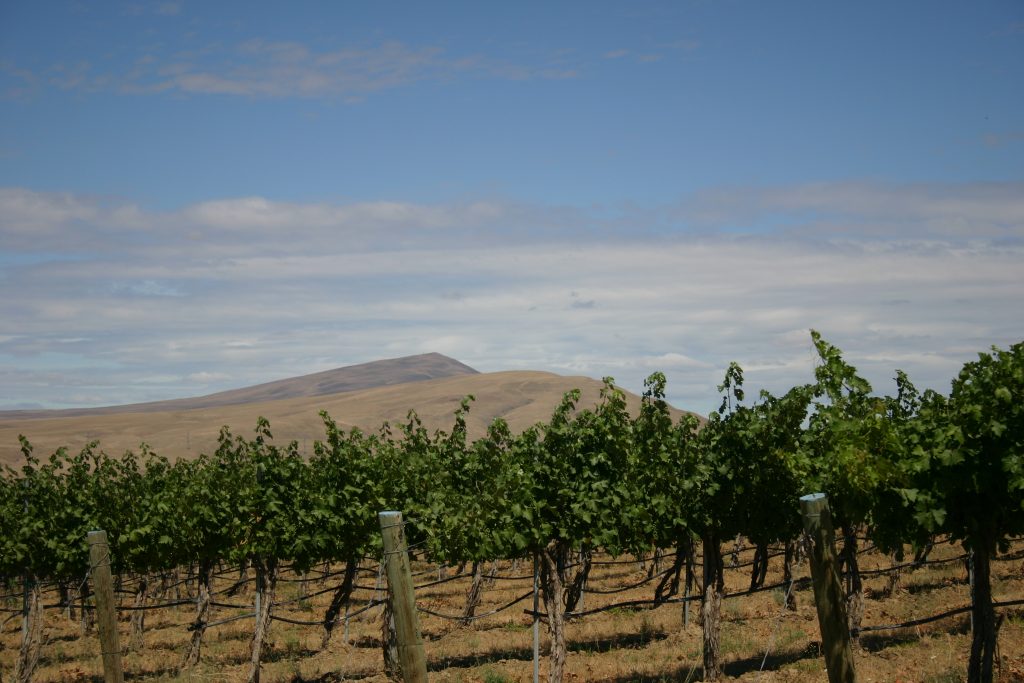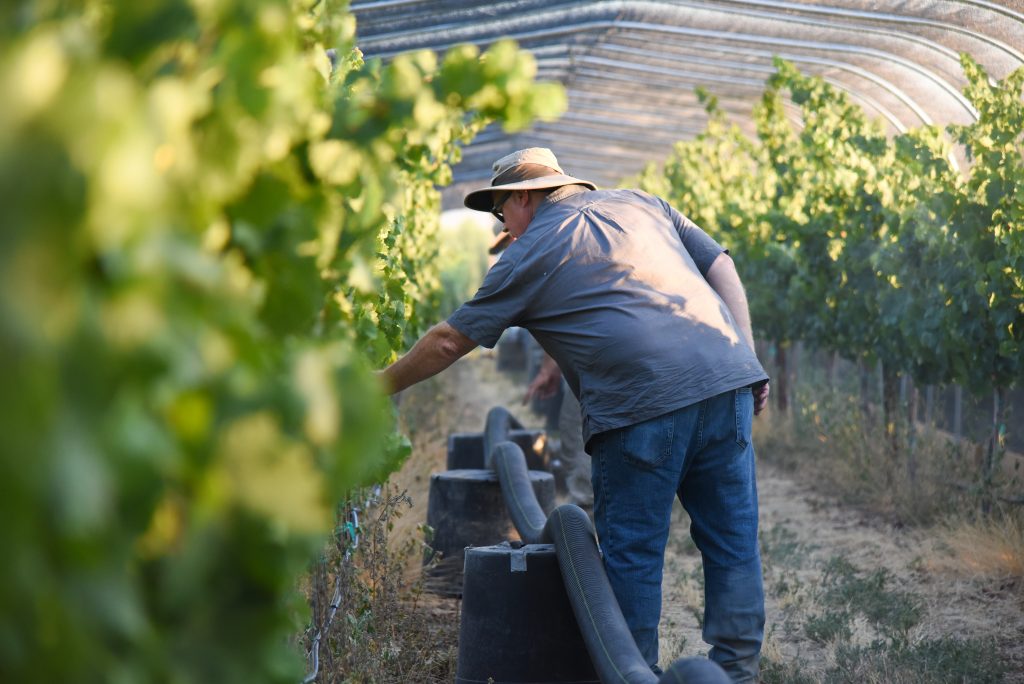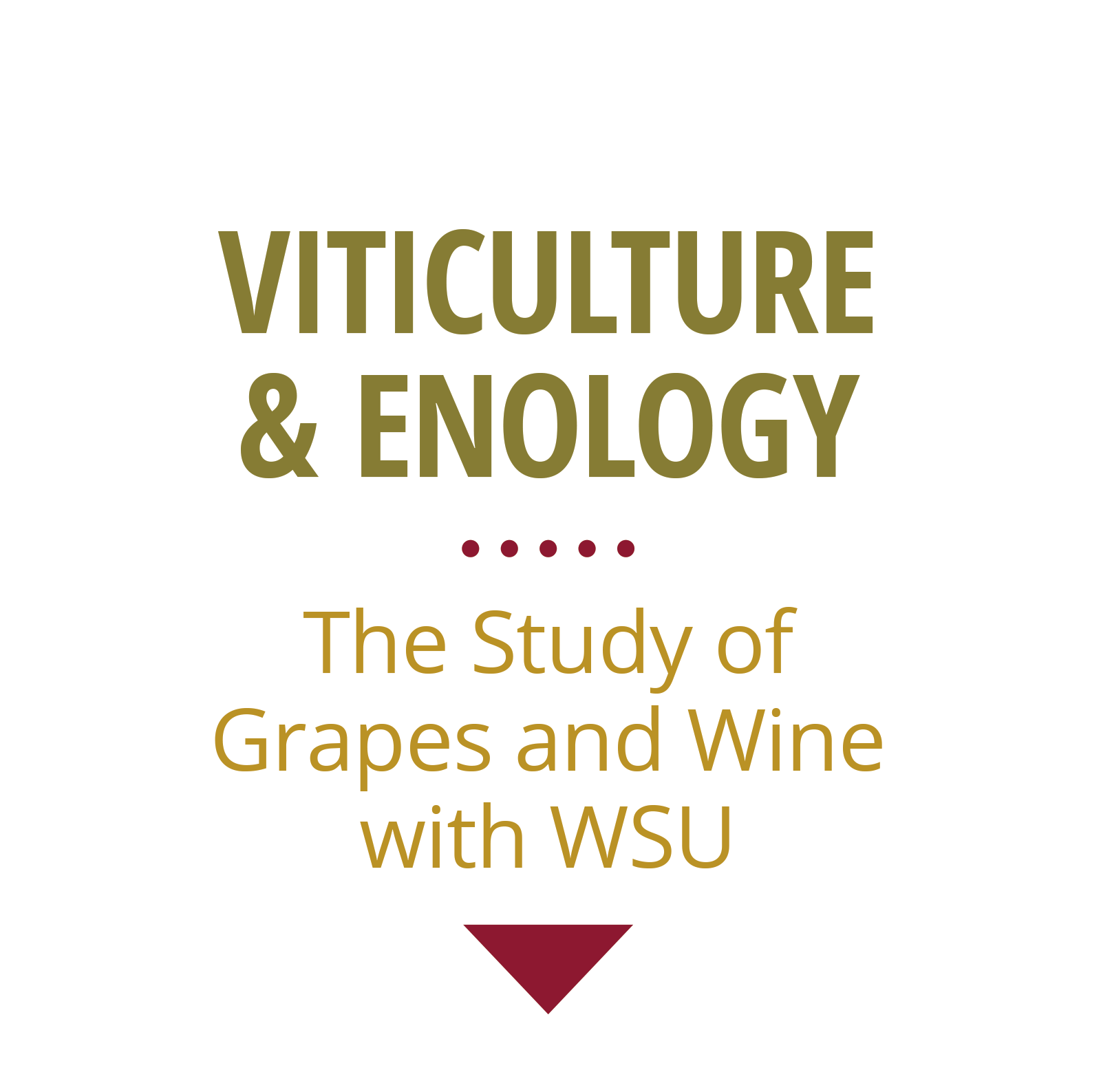Why Learn at WSU?
Hands-On Study
 In Viticulture & Enology, we learn by doing. Research opportunities, fieldwork, internships, in-depth labs, and field trips inspire you to explore topics with passion and purpose.
In Viticulture & Enology, we learn by doing. Research opportunities, fieldwork, internships, in-depth labs, and field trips inspire you to explore topics with passion and purpose.
Ste. Michelle Wine Estates WSU Wine Science Center
The Ste. Michelle Wine Estates WSU Wine Science Center offers students plenty of opportunities for hands-on learning and research.
- Independent Research Labs. Students work with state-of-the-art equipment in a lab dedicated to the fields of viticulture, microbiology, and chemistry.
- Sensory Classroom and Sensory Laboratory. Here, students learn to conduct sensory analysis.
- Research Winery. Students see fermentation science firsthand, and learn about winery equipment and operations.
- Greenhouses. Coming in 2018!
- Growth Chambers. The Wine Science Center was designed with space for two walk-in growth chambers. This high-tech system would allow students and researchers to research plants under extreme temperatures and varying environmental conditions. Financial contributions are necessary to fund this system. Learn how to donate to the growth chamber project »
Albert Ravenholt Research and Teaching Vineyard
Made possible through an endowment from the Albert R. Ravenholt Foundation, the Ste. Michelle Wine Estates WSU Wine Science Center includes a 2-acre teaching vineyard. There, a training system demonstration block is planted with Syrah on 9 different training systems, offering a hands-on learning experience. Students learn about vineyard maintenance and fruit ripening first hand.
The vineyard is managed by viticulture faculty member Baskar Bondada, PhD, and one student in a paid position each semester. Maintenance is supported by WSU Tri-Cities grounds crew, WSU Extension, and industry partners.
Irrigated Agriculture Research & Extension Center
Our research center in Prosser, Wash., is home to graduate and undergraduate students conducting research in a variety of fields related to vineyards and grapes. Labs, 30 acres of vineyards, and other research facilities strengthen students’ understanding and practice of grape growing and vineyard management.
Faculty at the IAREC support undergraduate research by hosting students in the laboratories, vineyards, and greenhouses. They also train viticulture and enology graduate students in the fields of horticulture, plant physiology, plant genetics, plant pathology, entomology, soil science, agro-meteorology, and agricultural engineering.
Industry Connection
 Everyday WSU faculty, researchers, and students work with industry members to solve critical issues and provide relevant training for our students: the next generation of industry leaders. In close partnership with an engaged industry, the V&E Program propels Washington wine forward. Students pair with Washington’s premiere winemakers and growers to create unique wines and gain valuable connections and experience in the wine industry.
Everyday WSU faculty, researchers, and students work with industry members to solve critical issues and provide relevant training for our students: the next generation of industry leaders. In close partnership with an engaged industry, the V&E Program propels Washington wine forward. Students pair with Washington’s premiere winemakers and growers to create unique wines and gain valuable connections and experience in the wine industry.
Ste. Michelle Wine Estates WSU Wine Science Center
The Wine Science Center represents the industry’s investment in the Viticulture & Enology Program. It’s also a daily demonstration of how WSU gives back to the industry, and the state’s economy, through research, education, and extension.
The Albert R. Ravenholt Teaching Vineyard
We rely on our industry partnerships to help maintain the teaching vineyard so that students can have a place to learn about vineyard development, fruit ripening, and growing styles. This vineyard was developed and financed with industry support, and each year our friends in the viticulture community participate in its upkeep.
Blended Learning
The Blended Learning student-made wine project is a one-credit course that pairs students with Washington state grape growers and winemakers. Together, industry mentors and V&E students make unique wines. Students also make powerful connections and gain valuable experience in the process.
In Blended Learning, industry support goes beyond the vineyard and the winery. The caps, bottles, labels, and other valuable components in the winemaking process are donated to the Viticulture & Enology Program by industry partners.
Research
Much of the fruit that we use in viticulture and enology research is donated by growers who work closely with WSU researchers to execute the research plan. Likewise, other support organizations donate materials and equipment to fulfill our research needs.
Renowned Faculty
 Our renowned faculty are among the best in their fields, and they’re committed to training future scientists and wine industry leaders. A world-class faculty translates to a premiere education with regional and worldwide impacts.
Our renowned faculty are among the best in their fields, and they’re committed to training future scientists and wine industry leaders. A world-class faculty translates to a premiere education with regional and worldwide impacts.


